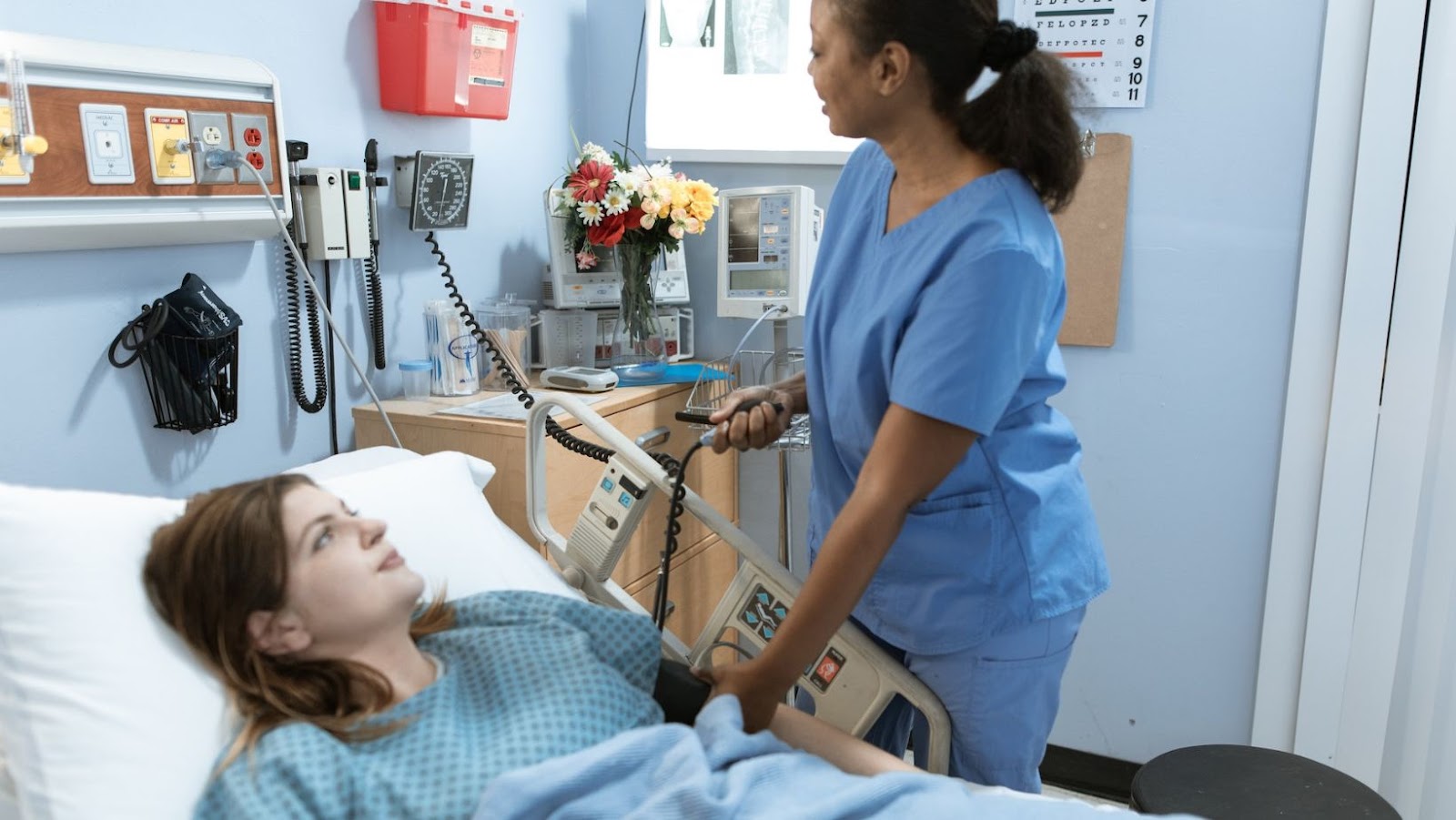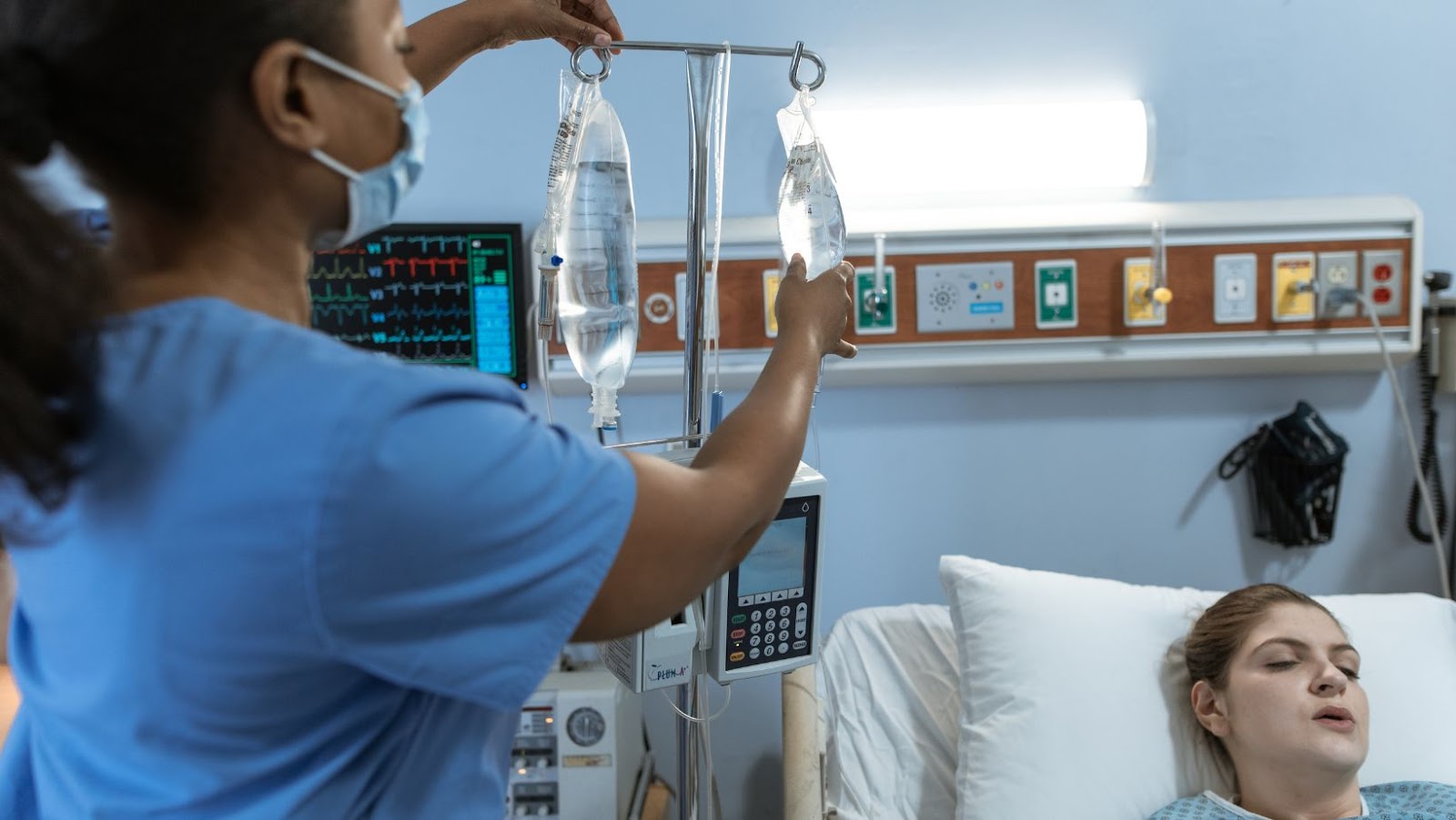
The nurse-patient relationship holds a special place in patient care in the healthcare system. It is an essential aspect that can greatly influence a patient’s recovery and overall well-being. As compassionate and skilled healthcare professionals, nurses play a pivotal role in fostering a therapeutic alliance with their patients. Beyond just administering medications and treatments, they are a constant source of support during a patient’s healthcare journey.
The nurse-patient relationship has always been important and valued. The bond between nurses and patients is highly emphasized from Florence Nightingale to modern healthcare. In today’s fast-paced medical world, where technology and administration dominate, recognizing the value of this relationship is crucial.
Let’s explore some reasons why the nurse-patient relationship is vital for patient recovery.
Patient Education
Nurses serve as valuable sources of health information and play a vital role in educating patients about various aspects of their health. Here’s why patient education is an important reason why the nurse-patient relationship is vital for recovery:
- Patient education improves treatment adherence, leading to better health outcomes and smoother recovery. It helps patients understand the importance of following prescribed treatment plans, medication regimens, and lifestyle modifications.
- Nurses educate patients about self-care practices such as proper nutrition, exercise, medication administration, wound care, and symptom management. Patient education empowers individuals to participate in self-care, promoting better overall well-being and faster recovery.
- Nurses provide preventive education to patients, teaching them about measures to minimize the risk of complications or future health issues. It includes information on vaccinations, regular screenings, healthy lifestyle choices, and recognizing early warning signs. Preventive education helps patients develop proactive habits to prevent the recurrence or worsening of their conditions.

It is important to note nurses themselves should also prioritize their own education and professional development. Today, in the digital age, many affordable RN to BSN online programs are available that provide nurses with advanced skills and knowledge. An accredited degree, such as an RN to BSN program, equips nurses with the necessary competencies to provide primary healthcare in diverse settings, offer education to individuals, families, and community groups, and continue their lifelong learning. This advanced education further enhances nurses’ ability to educate patients effectively and contribute to their recovery process.
Trust and Confidence
When patients trust their nurses, they are more likely to actively participate in their recovery, follow treatment plans, and adhere to medication schedules. They feel reassured that their nurse has their best interests at heart and that they are receiving the appropriate care and support. Trust also enables patients to share important information about their symptoms, concerns, and lifestyle, allowing nurses to gather accurate data and make informed decisions about their care. Moreover, trust and confidence in the nurse-patient relationship foster a sense of psychological safety, reducing anxiety and stress levels for patients, which can positively impact their physical healing process.
Communication
Regarding communication, there are several tips for nurses to enhance their interactions with patients.
- Active listening is paramount. Nurses should give their undivided attention, maintain eye contact, and show genuine interest in what the patient says. It helps create a safe space for patients to express their concerns, fears, and expectations.
- Clear and concise language should be used to ensure that patients understand their condition, treatment options, and care instructions. Complex medical jargon should be avoided, and nurses should be skilled at explaining information in a manner that is easily understandable to patients.
- Non-verbal communication, such as facial expressions, body language, and gestures, can convey empathy, compassion, and reassurance. Non-verbal cues should align with the verbal message to enhance understanding and build trust.
- Nurses should also encourage questions and provide ample opportunities for patients to seek clarification or express any uncertainties they may have.
- Effective communication also involves adapting to individual patient preferences and cultural backgrounds.
- Nurses should be sensitive to patients’ communication styles, language barriers, or cultural norms and strive to provide appropriate support and information tailored to each patient’s needs.
- Communication technologies and tools, such as educational materials, visual aids, or language interpreters, can further enhance communication and ensure effective information exchange.
Emotional Support
Patients facing illness and hospitalization experience many emotions, including fear, anxiety, sadness, and uncertainty. In such vulnerable moments, a caring and compassionate nurse who takes the time to build a supportive relationship can make a tremendous difference in the patient’s journey toward recovery. By offering emotional comfort, the nurse creates a safe space for patients to express their feelings and concerns, allowing them to release emotional distress and find solace in their time of need.

The presence of a nurturing nurse who demonstrates empathy and understanding can alleviate anxiety, provide reassurance, and instill a sense of hope in patients. This emotional support positively impacts patients’ mental well-being, helping to reduce stress levels, improve mood, and enhance overall psychological resilience.
When patients feel emotionally supported, they are better equipped to cope with the challenges of their illness, make informed decisions, and actively participate in their recovery process. Furthermore, studies have shown that emotional well-being is closely linked to physical health, and patients who receive adequate emotional support from their nurses tend to experience faster healing, improved treatment outcomes, and a more positive overall recovery experience.
Individualized Care
Every patient has unique needs, preferences, and goals, and a strong nurse-patient relationship allows nurses to understand and cater to these individual requirements. By building a close rapport, nurses gain insight into their patients’ circumstances, cultural backgrounds, and health beliefs, which helps them tailor care plans specific to each patient. This personalized approach ensures that patients receive the most appropriate and effective treatments for their conditions, ultimately enhancing their chances of recovery.

Additionally, understanding the patient as an individual enables nurses to consider factors such as their lifestyle, family support, and socioeconomic status, which can significantly impact their recovery journey. By incorporating these factors into the care plan, nurses can provide guidance and support that aligns with the patient’s specific circumstances, increasing their engagement in their care and fostering a sense of empowerment.
Early Detection of Complications
When a strong bond is established between the nurse and the patient, the nurse becomes familiar with the patient’s baseline health status, enabling them to recognize even subtle changes that could indicate the onset of complications. Through regular assessments and close monitoring, nurses can detect signs of deteriorating health early on, allowing for timely intervention and effective management of potential setbacks in the recovery process. This early detection is pivotal in preventing complications from progressing to more severe stages, reducing the risk of further health deterioration, and improving patient outcomes.
Conclusion
The nurse-patient relationship holds immense significance in the process of recovery. Beyond the technical expertise and medical interventions, nurses’ emotional support and compassionate care can significantly impact a patient’s overall well-being. The relationship built on trust, understanding, and effective communication fosters a sense of comfort, empowerment, and motivation for patients, allowing them to actively engage in their treatment plans and make informed decisions about their health. The nurturing environment created by a strong nurse-patient bond enhances patient satisfaction and improves clinical outcomes, reducing the risk of complications and promoting faster recovery.























